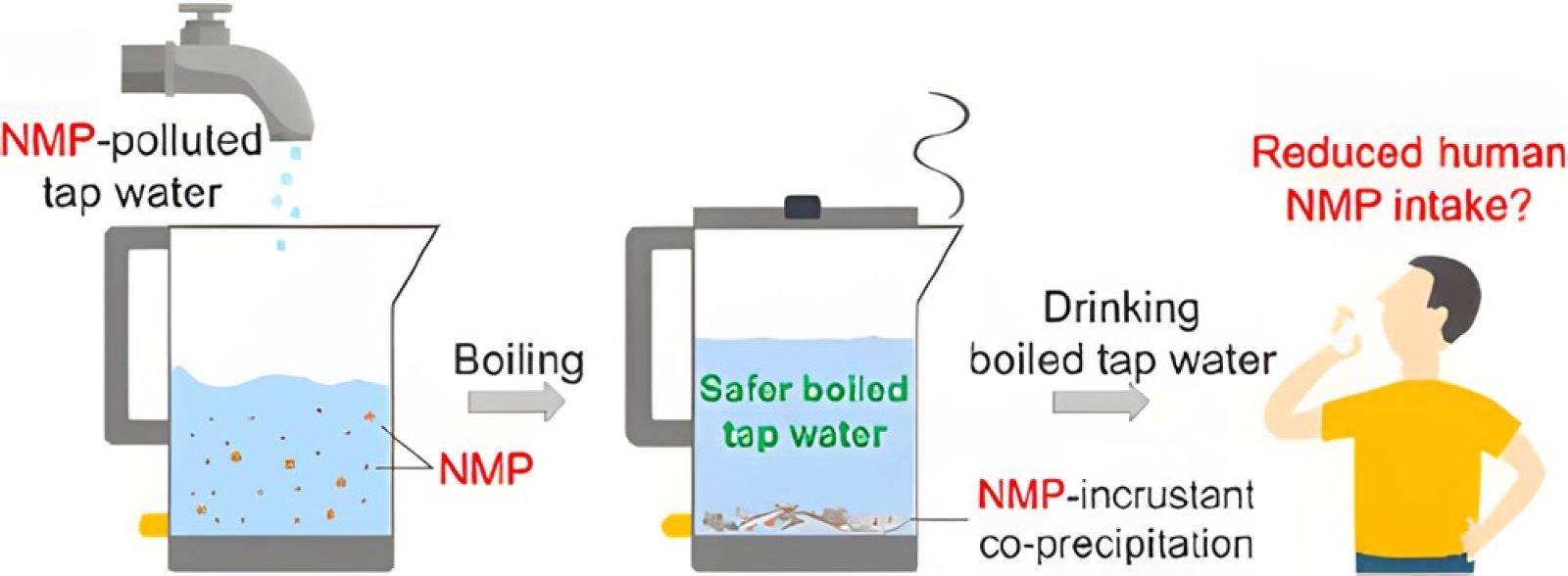Reducing Microplastic Intake: A Surprisingly Simple and Effective Solution
Published by Redbran,
Source: Environmental Science & Technology Letters
Other Languages: FR, DE, ES, PT
Source: Environmental Science & Technology Letters
Other Languages: FR, DE, ES, PT
Follow us on Google News (click on ☆)

Boiling tap water can trap nano- and microplastics within scale particles, which can then be easily filtered.
Credit: Eddy Zeng
The research team, led by Zhanjun Li and Eddy Zeng, investigated the efficiency of boiling tap water containing calcium to trap nano and microplastics within scale particles, which naturally form in hard water when heated. These deposits, or crystalline structures of calcium carbonate (CaCO3), are found to capture up to 90% of the plastics present in the water. The process is straightforward: after boiling tap water for five minutes, the researchers observed that cooling the water allowed for easy filtering of these deposits, thus reducing the quantity of plastic ingested by humans.
This method offers a dual benefit. On one hand, it uses the natural process of scale formation in hard water to capture plastics. On the other hand, it proposes a cost-effective and readily accessible solution to everyone, requiring no advanced filtration systems. Even in soft water, where scale forms less, boiling manages to remove approximately 25% of the plastic particles.

The implications of this discovery are significant. It not only offers a simple strategy to reduce our consumption of plastics but also raises questions about the long-term effects of these particles on human health, particularly on the gastrointestinal microbiome. Research continues to better understand these impacts, but in the meantime, boiling our drinking water could be an effective first step towards reducing our exposure to plastics.
While simple, this approach highlights the need for innovative and accessible solutions to combat plastic pollution. It also underscores the importance of scientific research in tackling environmental threats and protecting public health.